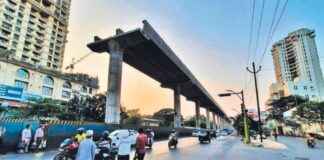Creating a Slum-Free Mumbai: Strict Implementation of Redevelopment Act Emphasized
The vision to transform Mumbai into a slum-free city has been highlighted by the Bombay High Court, emphasizing the crucial need for the strict implementation of the Maharashtra Slum Area Act. The court expressed concerns about the challenges faced by slum dwellers who often fall victim to the interests of private developers, leading to inadequate living conditions and delayed redevelopment projects. As the financial capital of India and an international city, Mumbai’s transformation into a slum-free metropolis is imperative for sustainable development and the well-being of its residents.
Challenges Faced by Slum Dwellers
Slum dwellers in Mumbai have long been marginalized and left vulnerable to the whims of private developers, who often prioritize their own interests over the welfare of the community. The high court’s scrutiny of the Maharashtra Slum Area Act aims to address these challenges and ensure that slum redevelopment projects are conducted in a fair and transparent manner. By holding developers accountable for the quality and timeliness of their work, the court seeks to protect the rights of slum dwellers and uphold their dignity as residents of the city.
Importance of Sustainable Development
The high court’s emphasis on sustainable development echoes a global trend towards creating livable and environmentally conscious urban spaces. By advocating for open spaces and quality construction, the court envisions a future for Mumbai that balances economic growth with social welfare. Drawing inspiration from cities like London, where green spaces are prioritized over excessive development, the court calls for a holistic approach to urban planning that benefits both current and future generations.
Ensuring Accountability and Quality in Development Projects
One of the key concerns raised by the high court is the lack of accountability in slum redevelopment projects, leading to delays and substandard living conditions for residents. By urging the government and the Slum Rehabilitation Authority to take a more proactive role in overseeing these projects, the court seeks to prevent developers from exploiting slum dwellers for their own gain. The focus on quality construction and maintenance underscores the court’s commitment to creating sustainable and dignified housing for all residents of Mumbai.
In addition to addressing the immediate challenges faced by slum dwellers, the high court has also proposed long-term solutions to ensure the well-being of migrant workers in the city. By suggesting the implementation of a rental housing or tenement policy, the court acknowledges the vital role that migrant workers play in Mumbai’s economy and the need to provide them with affordable and secure housing options. This forward-thinking approach highlights the court’s commitment to inclusive urban development that benefits all segments of society.
The Supreme Court’s directive to conduct a performance audit of the Maharashtra Slum Area Act reflects a growing recognition of the need to reform existing laws and policies to better serve the interests of the poor and marginalized. With over 1,600 cases related to the Act pending before the Bombay High Court, there is an urgent need to streamline the redevelopment process and ensure that slum dwellers are not left behind in the city’s rapid urbanization.
As Mumbai continues to evolve and grow, it is essential to prioritize the well-being of all its residents, including those living in slums. By enforcing strict implementation of the redevelopment act and holding developers accountable for their actions, the high court is paving the way for a more equitable and sustainable future for the city. The vision of a slum-free Mumbai is not just a lofty goal but a necessary step towards creating a more inclusive and vibrant urban environment for all.




















